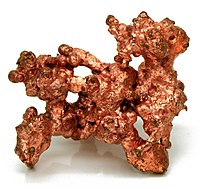
Efficient removal of organic dye pollutants using covalent organic frameworks
Sign Up to like & getrecommendations! Published in 2017 at "Aiche Journal"
DOI: 10.1002/aic.15699
Abstract: A rational design and synthesis of covalent organic frameworks (COFs) displaying efficient adsorption of surrogates for common organic pollutants is demonstrated herein. Significantly, the top performing mesoporous triazine-functionalized polyimide COF exhibits superior adsorption of the… read more here.
Keywords: organic dye; removal organic; dye; efficient removal ... See more keywords

AC electrokinetic immobilization of organic dye molecules
Sign Up to like & getrecommendations! Published in 2020 at "Analytical and Bioanalytical Chemistry"
DOI: 10.1007/s00216-020-02480-4
Abstract: The application of inhomogeneous AC electric fields for molecular immobilization is a very fast and simple method that does not require any adaptions to the molecule’s functional groups or charges. Here, the method is applied… read more here.
Keywords: organic dye; immobilization; dye molecules; immobilization organic ... See more keywords

Recent developments in MnO2-based photocatalysts for organic dye removal: a review
Sign Up to like & getrecommendations! Published in 2020 at "Environmental Science and Pollution Research"
DOI: 10.1007/s11356-019-07568-8
Abstract: The textile industry consumes a large volume of organic dyes and water. These organic dyes, which remained in the effluents, are usually persistent and difficult to degrade by conventional wastewater treatment techniques. If the wastewater… read more here.
Keywords: mno2 based; organic dye; developments mno2; based photocatalysts ... See more keywords

Chemical Bonding of Organic Dye onto Cotton Fibers Using Silane as Coupling Agent (I)
Sign Up to like & getrecommendations! Published in 2018 at "Fibers and Polymers"
DOI: 10.1007/s12221-018-7732-z
Abstract: A derivative of an optical brightening agent (organic dye), i.e., 2,6-dibromo-4-flouroaniline (synthesized and reported previously) has been chemically bonded to cotton fabrics through a coupling agent, i.e., 3-(2-aminoethylamino)- propyltrimethoxy silane. These chemically treated cotton fabrics… read more here.
Keywords: organic dye; silane; coupling agent; chemical bonding ... See more keywords

Aggregation-enhanced adsorption and optoelectronic performance of metal-free organic dye on anatase (1 0 1) toward water-splitting purpose: A first-principles investigation
Sign Up to like & getrecommendations! Published in 2020 at "Applied Surface Science"
DOI: 10.1016/j.apsusc.2019.144139
Abstract: Abstract Metal-free organic dye-sensitized water splitting systems have recently been experimentally verified to afford good optoelectronic properties for the water-splitting purpose. In this manuscript, we employ first-principles calculations to understand the aggregation of the metal-free… read more here.
Keywords: organic dye; water splitting; water; metal free ... See more keywords

The development of light-responsive, organic dye based, supramolecular nanosystems for enhanced anticancer therapy
Sign Up to like & getrecommendations! Published in 2019 at "Coordination Chemistry Reviews"
DOI: 10.1016/j.ccr.2019.04.004
Abstract: Abstract Light-responsive supramolecular nanosystems refer to phototherapeutic agents that could be triggered by light. They have thus shown promising applications and aroused tremendous attention in many fields including drug delivery systems, photodynamic therapy and photothermal… read more here.
Keywords: therapy; responsive organic; light responsive; supramolecular nanosystems ... See more keywords

Photocatalytic organic dye by two new coordination polymers with flexible dicarboxylate and different N-donor linkage
Sign Up to like & getrecommendations! Published in 2021 at "Inorganica Chimica Acta"
DOI: 10.1016/j.ica.2021.120284
Abstract: Abstract Two new Zn(II) coordination polymers (CPs) with [Zn(L)(2,2′-bipy)] (1) and [Zn(L)(bbi)0.5] (2) (H2L = 3,3′-(1,2-phenylenebis(methyleneoxy)) dibenzoic acid, bbi = 1,1′-(1,4-butanediyl)bis(imidazole), 2,2,’-bipy = 2,2,’-bipyridine), have been solvothermally prepared. They exhibited 2D layer and 1D helical networks through the connectivity of Zn… read more here.
Keywords: two new; photocatalytic organic; coordination polymers; new coordination ... See more keywords

pH-responsive poly(gellan gum-co-acrylamide-co-acrylic acid) hydrogel: Synthesis, and its application for organic dye removal.
Sign Up to like & getrecommendations! Published in 2020 at "International journal of biological macromolecules"
DOI: 10.1016/j.ijbiomac.2020.03.024
Abstract: A poly(gellan gum-co-acrylamide-co-acrylic acid) (GGDA) hydrogel was synthesized by modifying gellan gum (GG) with partly neutralized acrylic acid (AAc) and acrylamide (AAm) under the crosslinking agent trimethylolpropane triglycidyl ether. With the introduction of carboxyl and… read more here.
Keywords: organic dye; adsorption; gellan gum; acrylic acid ... See more keywords

Towards cleaner wastewater treatment for special removal of cationic organic dye pollutants: A case study on application of supramolecular inclusion technology with β-cyclodextrin derivatives
Sign Up to like & getrecommendations! Published in 2020 at "Journal of Cleaner Production"
DOI: 10.1016/j.jclepro.2020.120308
Abstract: Abstract Organic dye pollutants in wastewater have always been one of the most serious environmental problems. Most of the chromogenic groups in organic dye, especially for cationic molecules, are nitrogenous groups, and their reduction is… read more here.
Keywords: cationic organic; dye pollutants; organic dye; removal cationic ... See more keywords

Ultra-layered sheet Cu Co nanoparticles for optimized application in catalytic reduction of organic dye
Sign Up to like & getrecommendations! Published in 2020 at "Materials Characterization"
DOI: 10.1016/j.matchar.2019.110116
Abstract: Abstract In the present study, hydrothermal method (120 °C temperature, 24 h) for synthesis of ultra-layered sheet Cu-Co nanoparticles with various compositions (Cu/(Cu + Co) = 0.1, 0.3, 0.5, 0.7, 0.9) to degrade methyl orange (MO, C14H14N3SO3) organic dye via a… read more here.
Keywords: reduction; organic dye; ultra layered; sheet nanoparticles ... See more keywords

Organic dye degradation through peroxymonosulfate catalyzed by reusable graphite felt/ferriferrous oxide: Mechanism and identification of intermediates
Sign Up to like & getrecommendations! Published in 2019 at "Materials Research Bulletin"
DOI: 10.1016/j.materresbull.2018.10.027
Abstract: Abstract A graphite felt/magnetite nanocomposite (GFMN) was synthesized and the corresponding characteristics were studied through X-ray powder diffraction (XRD), field emission scanning electron microscope (FESEM), vibrating sample magnetometer (VSM), Brunauer-Emmett-Teller (BET) specific surface area and… read more here.
Keywords: graphite felt; gfmn; dye degradation; degradation ... See more keywords